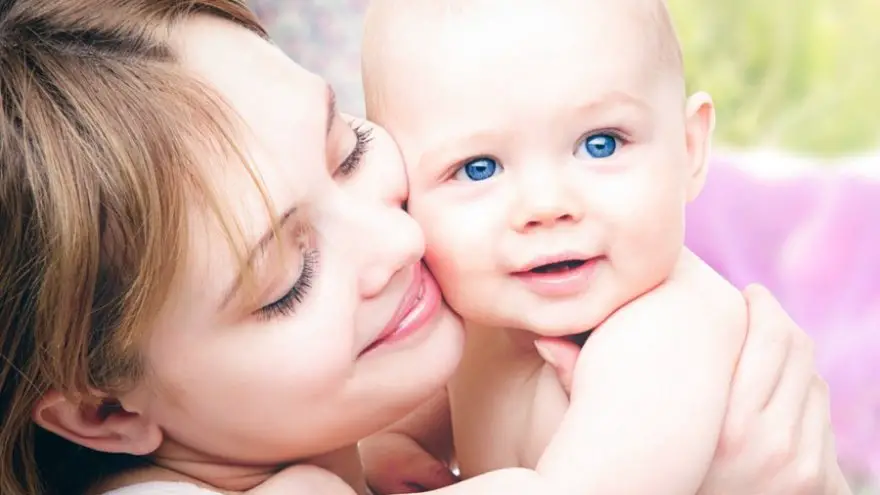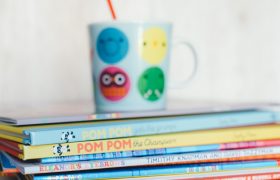Baby Exercises: 9-12 Months Fully Reviewed

When your baby is between 9 and 12 months they seem to be constantly on the move and while they are definitely learning on their own just toddling around and exploring, but interaction with you will always be their best bet at developing new skills and learning new things so don’t give up on the daily play time yet.
There are so many skills your baby has picked up on their journey to this point that are still being reinforced and perfected so continuing the theme with the games you’ve already been playing is key in helping them gain practice with things like using their hands for fine motor skills that they will need when they are toddlers, and learning their shapes, colors, and other vocabulary words.
Their physical development is gaining new ground as they are beginning to be able to walk unassisted and even run. Don’t forget to focus on all their motor skills though, because they are still learning to get their hands and arms to cooperate with their ideas.
At home
Help your child practice their fine motor skills by letting them change the pages in a board book as you read it. Your baby may know a few simple words now and can begin learning things like animal sounds. If there’s a cow in the book ask your baby to find it and ask them what the cow says. Moo together. Learning to imitate sounds is always a blast for your baby.
Let them practice holding things by providing them with some pots and pans and a wooden spoon as their drumstick. This grasping and hitting are actually super helpful for them in the long run when it comes to learning to control their movements. Practice their fine motor skills by letting them finger paint or use a paint brush to make some messes.
Your baby is starting to be able to stack things on top of other things to encourage this with blocks or stacking cups. Can your baby make a tall tower? There’s only one way to find out!
Pulling to stand should be a reliable skill at this point, so help them by rearranging the furniture to give them a few spans of supportive furniture so they can cruise around. As they get adept at it, move the furniture again to cause them to have a few spans of unassisted steps. At first, they may only be able to go for a few steps at a time without hanging on, but it won’t take long for them to be better at it.
Babies at this age are great mimics and learning the basic poses for yoga or other exercises can be fun for your baby and help them build both their muscles and motor skills but also build in them a love for an exercise routine that will last them a lifetime.
Textures are still king with babies this age and beginning to introduce sensory games will be an excellent way to help them work out their new found skills. Letting them play in a bowl of soapy water or giving them a tray of whipped cream to smash might be messy but it is definitely fun and beneficial. If the mess is a step too far for you consider making them a sensory water bottle, filled with soapy water and glitter, and let them roll and shake it to their heart’s delight. Make sure you glue the lid shut and supervise them, you never know what kind of inventive measures a baby will take to try to get their hands on that sparkly stuff in the bottle.
 Out in the wide world
Out in the wide world
The sandbox becomes more interesting now as your baby is able to fill and empty cups of sand and even beginning to understand how to work a strainer. Bring the toys needed for your baby to fully enjoy the sand but keep an eye out for them trying to eat it. They are old enough to understand “no” now so it should be easier to manage a safe time at the sandbox.
Your baby is learning to climb now and will really enjoy the stairs and jungle gym areas, while they may not need your hands on them the entire time they still need you nearby for reassurance and cuddles if they fall. Letting them work it out themselves when it comes to climbing is a good habit to get into now though, as they need these learning experiences.
It’s becoming a time when your baby is able to enjoy places like the zoo and hands-on museums more and more. Going through every experience with a dialog about what is happening is going to make these trips more fun for both of you. Discuss the animals, what they are doing, what their habitats look like. The more you talk to your baby the more words they will learn.
By the end of 12 months your baby should be able to get into a sitting and even standing position without assistance from you (although they may still use furniture to pull up on), use their hands to pinch objects, hold a spoon, bring two blocks together, stack things on top of other things, put items into a container, and imitate babbling and noises. They should be exploring objects in many different ways like shaking them, banging them on the table, and even still mouthing them. If your baby isn’t able to do these things yet, again that may be completely normal but it’s worthwhile to discuss it with your pediatrician. Certain motor defects can be indicative of a larger problem so if your baby is unable to crawl by 12 months or is dragging one side of their body it’s time to bring it up with the doctor.
There will be so many firsts coming up during this time so keeping a journal or calendar to document them all will be a useful endeavor and will even be fun for you to look back on in coming years.






